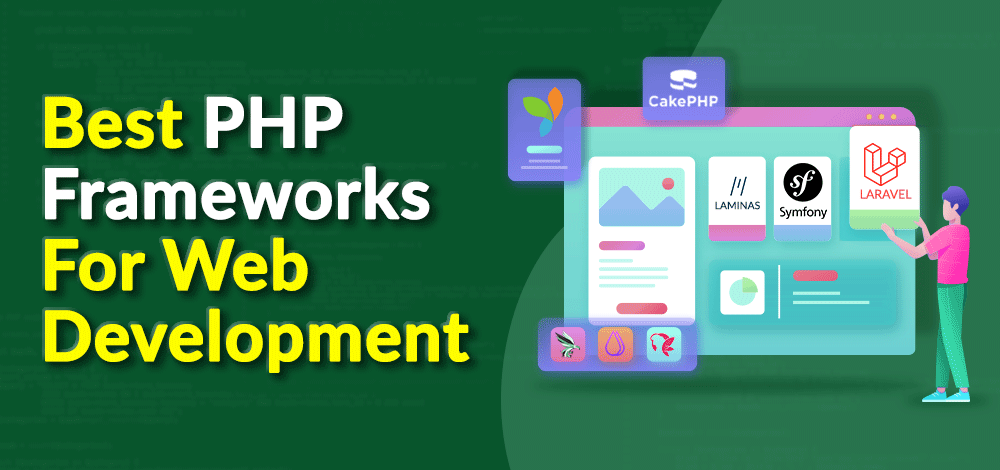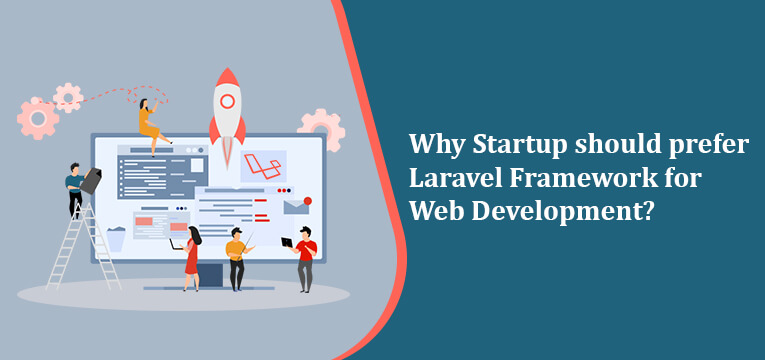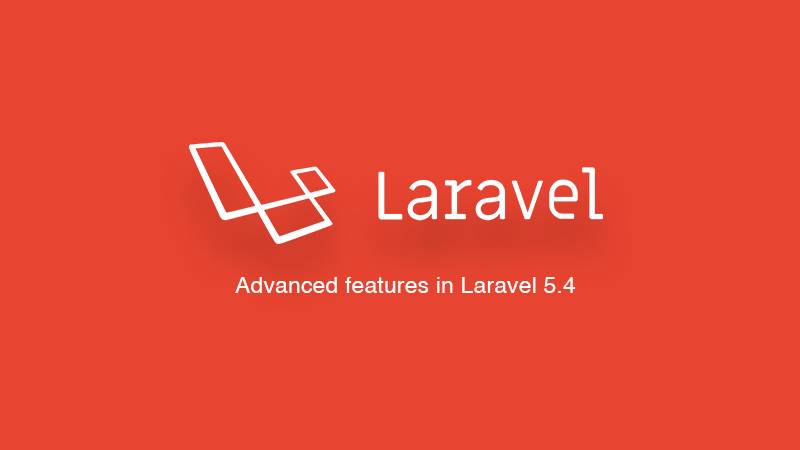Unveiling Laravel: The PHP Framework for Web Artisans
In the realm of web development, the quest for the perfect framework is a never-ending journey. Among the myriad options available to developers, Laravel stands tall as a beacon of modernity, simplicity, and robustness. Designed for web artisans who seek elegance alongside functionality in their craft, Laravel has charmed its way into the forefront of PHP frameworks.
Laravel's origin traces back to its creation by Taylor Otwell in 2011, responding to the need for a more accessible and enjoyable framework for PHP developers. Since then, it has continually evolved, addressing the complexities of web application development with a special blend of expressive syntax and powerful features.
At its core, Laravel offers an MVC (Model-View-Controller) architecture, a widely-adopted design pattern that separates the data (Model) from the user interface (View) and the logic that handles the user input (Controller). This separation not only promotes a cleaner codebase but also easier maintenance and scalability of applications.
One of the framework's most laudable aspects is its intuitive routing system. Routing in Laravel is a breeze, enabling developers to define URLs and their corresponding actions with fluent, expressive methods. This aligns well with modern web application needs, where clean, SEO-friendly URLs are not just a nicety but a necessity.
Another powerful feature of Laravel is Eloquent ORM (Object-Relational Mapping), a built-in data access layer that simplifies interactions with the database. With Eloquent, developers can eloquently query the database using PHP syntax rather than writing SQL code, leading to fewer errors and higher productivity. The ActiveRecord implementation also provides a direct correspondence between a database table and a class, making the code more intuitive.
Laravel's blade templating engine further enhances the framework's appeal. Blade allows for a very clean separation of controller logic and presentation. Developers can create templates with minimal PHP knowledge by using simple and intuitive directives. Blade views are compiled into plain PHP code when rendered, ensuring they are as fast as underlying native PHP templates.
What's more, Laravel ships with a host of tools and features that render application development less daunting. Artisan, the framework's command-line interface, grants developers the power to automate repetitive programming tasks. Artisan can be used to handle database migrations, seeding, testing, and craft scaffold code, speeding up the development process.
Security is also a pillar of the Laravel ecosystem. With a focus on safeguarding applications, Laravel offers several out-of-the-box solutions to combat common security threats such as SQL injection, cross-site request forgery (CSRF), and cross-site scripting (XSS). These measures are seamlessly woven into the framework, ensuring developers can build secure applications without being security experts.
Moreover, Laravel's ecosystem is bolstered by an array of companion tools and services like Laravel Horizon for queue monitoring, Laravel Nova for administration panel design, and Laravel Echo for event broadcasting. Each tool is designed to integrate effortlessly with the main framework, reflecting Laravel's philosophy of simplifying the developer's workload without compromising on functionality.
As Laravel continues to grow, its vibrant community of developers also grows in stride. The ample availability of packages, extensive documentation, and a plethora of tutorials make the adoption of Laravel an enticing proposition for both seasoned developers and novices alike.
This comprehensive approach has not only propelled Laravel to great heights but has also earned it the reputation of being one of the most beginner-friendly frameworks while still powerful enough to handle complex web applications. In the following segment, we will delve deeper into the advanced aspects of Laravel, its real-world applications, and testimonials from the industry professionals who rely on its functionality every day.
Stay with us as we continue to unravel the intricacies and advantages of this masterful PHP framework.
[To be continued...]# Laravel: Embracing Modern Web Development
Continuing our exploration into Laravel, the framework not only eases the development process but also excels in the area of testing. With testing being an integral part of software development, Laravel provides a built-in unit testing suite that is powered by PHPUnit. This encourages developers to adopt Test-Driven Development (TDD) practices, ensuring that applications are as free from bugs as possible from the outset.
Furthermore, Laravel's own ecosystem extends beyond its immediate features. Laravel's package development is notably facilitated by Packalyst, which hosts thousands of packages contributed by the community. These range from tools for integrating with payment gateways to implementing real-time messaging systems. The ease of extending Laravel by using these packages demonstrates the framework's flexibility and the community's commitment to open-source collaboration.
One key aspect of modern web development is the ability to integrate with front-end frameworks seamlessly. Laravel complements this perfectly with Laravel Mix, which provides a simple and fluent API for defining Webpack build steps for your Laravel applications. It helps with compiling assets like JavaScript and CSS, so developers can take advantage of modern front-end tools and libraries.
Laravel's unique selling proposition perhaps lies in its approach to addressing complex backend features with simplicity and finesse. One such feature is queues, which are essential for deferring time-consuming tasks to speed up web requests. Laravel simplifies this seemingly complex task, offering a unified API across various queue backends such as Amazon SQS, Redis, or database-driven implementations.
Moreover, Laravel's own schedulers allow for the elegant management of cron jobs directly from within the framework, negating the need for complicated setups on the server. These tasks are defined in a command-centric way which Laravel lovers have come to adore, again leveraging the Artisan command-line tool to full effect.
Beyond technical capabilities, Laravel's popularity is underpinned by its extensive learning and development community. The framework is supported by comprehensive documentation, making it accessible to programmers of varying skill levels. Websites like Laracasts offer high-quality screencasts on a range of Laravel topics, from fundamental concepts to advanced techniques, further enriching the knowledge pool.
The framework's real-world applications are vast and diverse. Companies of all sizes use Laravel to create complex APIs, e-commerce platforms, content management systems, and more. The scalability provided by Laravel allows startups to begin with modest applications and grow seamlessly without needing to switch to another framework as their user base expands.
Similarly, Laravel's inherent scalability means that it's not just for small applications. Large enterprises find the robust architecture and ability to integrate with other systems very appealing. Laravel’s queue system and other performance optimizations make it suitable for handling high-load applications, which is a testament to its design and the possibilities it offers for high-traffic scenarios.
One should not overlook Laravel's surrounding infrastructure, particularly Laravel Forge and Envoyer. Forge simplifies server management and site deployment, allowing developers to provision servers on various cloud providers and deploy web applications with incredible ease. Envoyer complements this by providing zero-downtime deployment, ensuring that software updates do not affect service availability.
As we wrap up, it's evident that Laravel's broad feature set doesn't compromise on depth. From painless routing and middleware to authentication, caching, error handling, and logging, the framework covers virtually all bases of modern web application requirements. Laravel is a system that treats developers with respect, appreciating their time and effort, which in turn fosters creativity and efficiency.
It's no surprise that Laravel's popularity continues to rise. The framework's philosophy of making software development enjoyable without sacrificing application functionality has struck a chord within the technology community. From beginners taking their first steps into web development to veterans architecting sprawling systems, Laravel continues to be a cornerstone of PHP web development.
Thus, Laravel stands true to its motto, 'The PHP Framework for Web Artisans.' That notion of artisanship—craftsmanship, quality, and attention to detail—is palpable in every aspect of the framework, from its elegant syntax to its community-driven enhancements. Laravel isn't just a tool; it’s a craftsman's workbench, designed to bring out the best in those who build upon its foundation.
[End of Article]









Comments